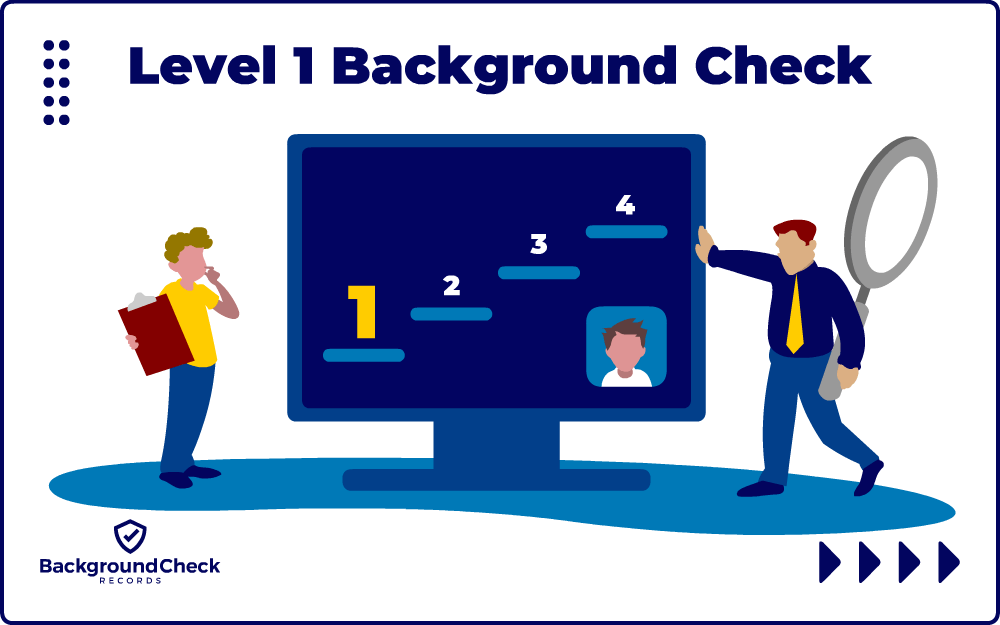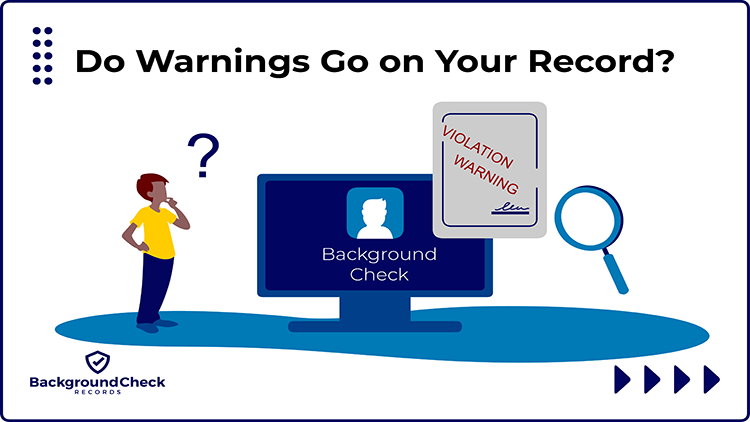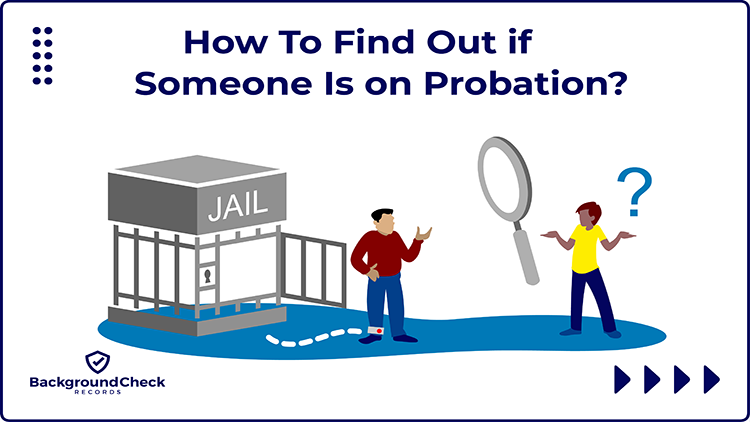Level 1 Background Checks: Meaning, Use, Limitations, Disqualifying Offenses
Level 1 background checks are the most basic level search that can be conducted, but sometimes it’s not clear what exactly a level 1 check means in comparison to other types of background screenings, if there are any limitations, and which offenses are considered disqualifiers.
Luckily, anyone can run a background check to see what shows up for themselves or others, but when considering 95% of employers utilize some form of record check, it’s also important to understand the intricacies of a level 1 check and the laws that govern them before preparing or applying for a position.1
What Does Level 1 Mean on a Background Check?
In simpler terms, basic background checks focus on a specific jurisdiction or geographic region (such as a county or state). These checks typically involve searching names (sometimes including date of birth) and include local criminal history reports, as well as verification of employment records.
Because it is a name-based search – the most basic kind of background check – the information returned can be very limited.
However, a level 1 screening should not be confused with a tier 1 background check. To be clear, tier 1 is the lowest level check performed by the federal government for employees and includes much of the screening information contained in a level 2 or level 3 background check.2
Understanding Level 1 Background Checks According to Florida Statutes
Florida is the sole state to have established standardized basic background checks. This indicates that the state has enacted legislation defining the parameters, usage, and constraints of level 1 checks, even though many other states and institutions adhere to a comparable definition.
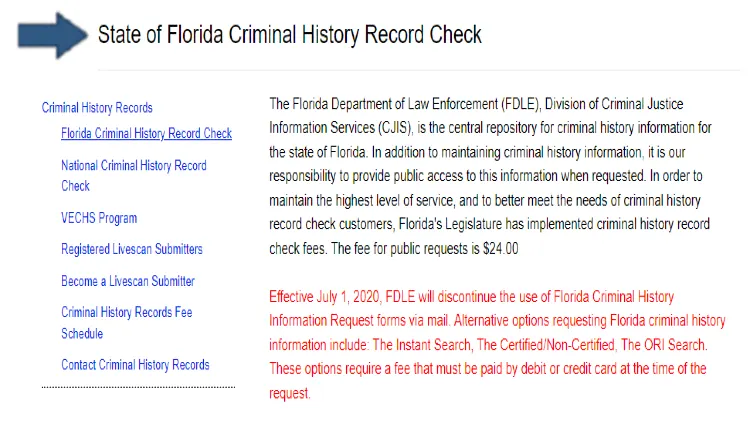
Chapter 435 of the Florida Statutes regarding employment screening has three conditions or standards that must be followed regarding level 1 screenings. These are:
- Individuals required to undergo a level 1 check must be screened for state-wide criminal history through the Florida Department of Law Enforcement, undergo an employment history screening, and be checked against the Dru Sjodin National Sex Offender Registry. It can also include a local criminal record check.
- The person screened cannot have any pending charges or convictions or plead no contest for criminal offenses outlined in the standards for Florida’s level 2 screenings.
- A candidate being screened cannot have a conviction or have pleaded no contest to a domestic violence offense.3
Level 1 background screenings can be useful; however, they are often not as extensive as higher level checks, and as with others, there are also limitations to this basic type of background check.
Limitations of Level 1 Criminal Background Checks
Because it is a name-based check covering only one geographic area, there are some distinct limitations to a level 1 background check which makes most employers or landlords use a higher level check when making decisions such as hiring or leasing.
One of the biggest limitations to a level 1 check is limited criminal history that can be returned since it usually covers just one state or jurisdiction. This means that a national background check is not being conducted and a person’s criminal history in another state may go undiscovered in a level 1 check.
Another limitation is the possibility of multiple hits on a name when conducting a search. For example, if someone has a fairly common name for that particular region of the country, multiple records could be found based on the name alone. Without additional identifiers, it would make it difficult to determine which record goes with the intended subject.
Moreover, level 1 background screenings typically do not include education verification, which means that a person’s educational credentials listed on an application or resume may not be fully validated. Without this verification, confirming whether someone has completed a diploma or degree program becomes impossible, potentially impacting their suitability for the position in question.
Since only Florida has outlined by law what a level 1 check covers, the variations in other states can also be a limitation to this type of screening. Outside Florida, there are no true standards for what should and should not be included in a level 1 check.
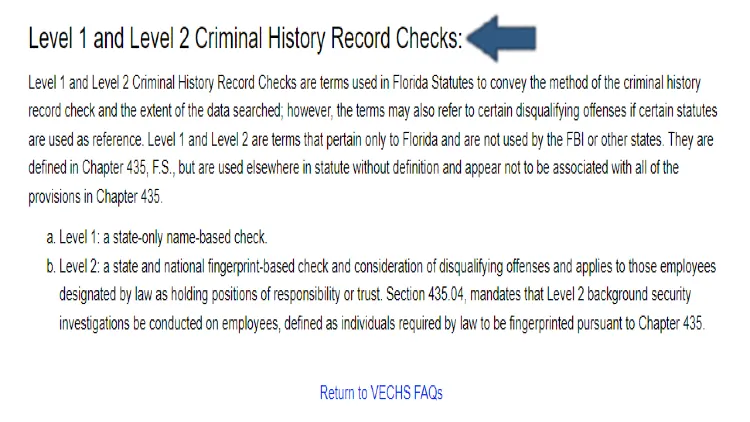
All in all, a level 1 background check is primarily for name and limited criminal history information, they are usually conducted to see if a subject has any disqualifying offenses on their record.
Disqualifying Offenses in Level 1 Background Checks
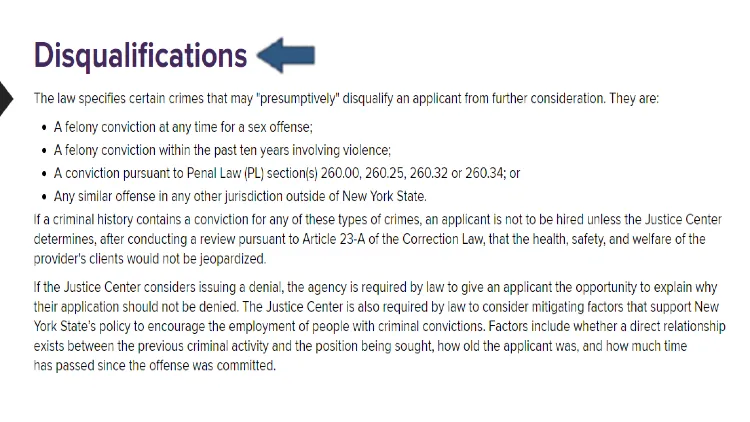
Disqualifying offenses are defined as those violations that would prevent someone from obtaining gainful employment or leasing a home or apartment. There are a number of disqualifying offenses that can be returned on a level 1 record check and these matters can negatively influence housing and employment opportunities.
Level 1 Disqualifying Offenses When Renting or Leasing Housing
When a level 1 check is conducted by a landlord or property manager, they are looking for disqualifying offenses that may prevent someone from living in a certain area. For example, if an apartment or home is beside a school, a person with a sex offense charge could be disqualified from leasing that particular residence.
Other disqualifiers on a level 1 report that could prevent someone from obtaining housing include convictions for burglary, domestic violence, or other violent crimes that could present a safety hazard to other tenants.
When using disqualifying offenses to take adverse action on a potential renter, the landlord or property manager must advise the person of the adverse action (disqualifier) and what prompted it per the Fair Credit Reporting Act.
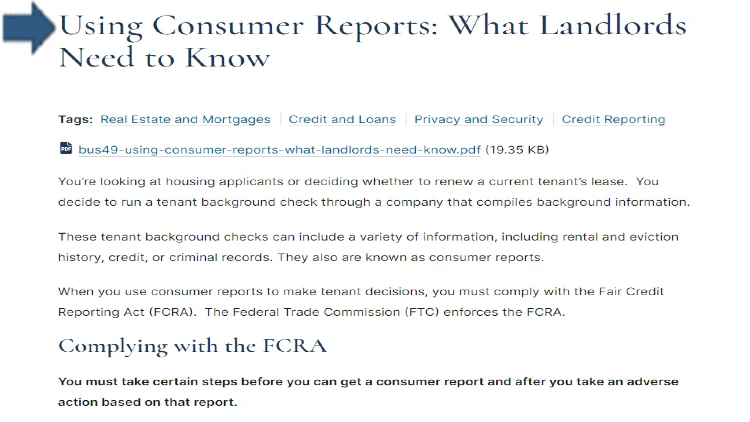
Do lawsuits show up in a level one background check when looking for an apartment or house? Typically they do not since a level 1 check is focused primarily on criminal history and the national sex offender registry.
Level 1 Background Checks: Criminal History Disqualifiers
Employers conducting level 1 checks are often looking for criminal charges or convictions that may impact a person’s ability to perform the duties of their job or are otherwise not compatible with the image the business wishes to have with the public.
The red flags help protect the agency and its clients from further harm or abuse.
For example, a person with a child abuse conviction will be disqualified from working in child care, and a person convicted of elder abuse would be prevented from working in a nursing home.
Local criminal history information can show up on a level 1 report. Other types of disqualifying offenses include domestic violence convictions, sex assaults, violent crimes or crimes of larceny.
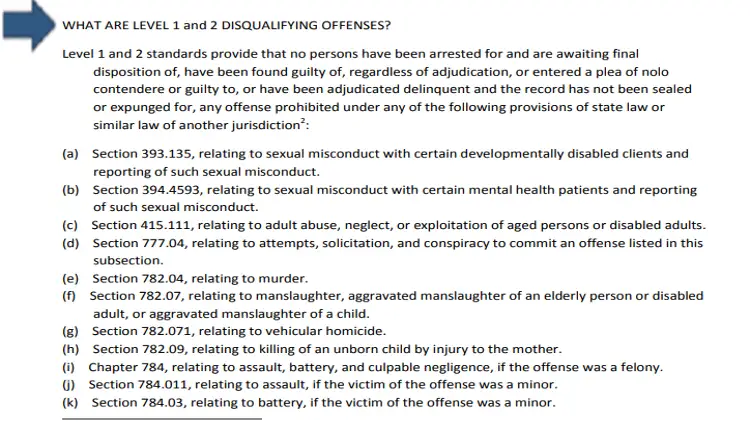
Any conviction that can negatively impact a person’s ability to perform their job is considered a disqualifying offense in a level 1 report but this is largely dependent on the position and employer so a more in-depth list can be found below.
Level 1 Disqualifying Offenses in Florida
Florida outlines the specific disqualifying offenses in its employment screening statute. Level 1 background screenings in Florida aim to identify offenses that could disqualify individuals from employment.
An employment background check in Florida can be a level 1 or 2 screening.
The table below shows which offenses are considered disqualified under Chapter 435.
| Level 1 Background Check Disqualifiers in FL Background Checks |
| Sex offense against disabled client |
393.135 |
| Sex offense against mental health client |
394.4593 |
| Abusing, neglecting or exploiting the elderly or disabled persons |
415.111 |
| Conspiring to commit any of the disqualifying offenses listed in Chapter 435 |
777.04 |
| Murder |
782.04 |
| Manslaughter or aggravated manslaughter of elderly, disabled, or child victims |
782.07 |
| Vehicular manslaughter |
782.071 |
| Killing an unborn child by injuring the expectant mother |
782.09 |
| Felony assault and battery |
784 |
| Assault on a child/minor |
784.011 |
| Kidnapping |
787.01 |
| False imprisonment of another |
787.02 |
| Enticing or luring a child |
787.025 |
| Luring, enticing, or removing a child from the state with criminal intent in custody matters |
787.04(2) |
| Failure to present a child at a custody hearing or failure to deliver a child to the legal guardian |
787.04(3) |
| Displaying a firearm or weapon within 1000 feet of a school |
790.115(1) |
| Possession of a weapon on school property |
790.115(2)(b) |
| Sexual battery |
794.011 |
| Prohibited sexual acts with minors |
794.05 |
| Prostitution |
796 |
| Lewd and lascivious behavior |
798.02 |
| Indecent exposure |
800 |
| Arson |
806.01 |
| Burglary |
810.02 |
| Felony voyeurism |
810.14 |
| Felony video voyeurism |
810.145 |
| Felony theft or robbery |
812 |
| Felony fraudulent selling of the controlled substance |
817.563 |
| Aggravated abuse or neglect of an elderly or disabled person |
825.102 |
| Lewd or lascivious acts in the presence of an elderly or disabled person |
825.1025 |
| Felony exploitation of an elderly or disabled person |
825.103 |
| Incest |
826.04 |
| Abuse, aggravated abuse, or neglect of a child |
827.03 |
| Contributing to the delinquency of a minor |
827.04 |
| Sexual performance by children |
827.071 |
| Violently resisting arrest |
843.01 |
| Preventing law enforcement or correctional officer from communicating or from protecting themselves |
843.025 |
| Helping an inmate or detainee escape |
843.12 |
| Helping a juvenile detainee escape |
843.13 |
| Obscene literature |
847 |
| Recruiting others into a criminal gang |
874.05 |
| Felony violations regarding drug abuse prevention and control relating to minors |
893 |
| Sexual misconduct with forensic clients |
916.1075 |
| Cruel and unusual treatment of inmates resulting in gross bodily injury |
944.35(3) |
| Violations regarding the escape from correctional custody |
944.40 |
| Harboring an escapee |
944.46 |
| Bringing contraband into a correctional facility |
944.47 |
| Sexual misconduct in a juvenile correctional facility |
985.701 |
| Bringing contraband into a detention facility (jail) |
985.711 |
A level 1 NCSI background check includes identity verification and local criminal history. It is used by a number of sporting organizations including Team USA, the official governing body for the United States Olympic Team.
Level 1 checks show a person’s local criminal history, and these criminal charges can stay on a person’s record for years or a lifetime unless they are removed by either sealing or expunging the record.
When Do Charges Fall Off Level 1 Checks & Screenings?
The longer a charge is on a person’s record, the longer it can have a negative impact. Each state has its own laws regarding sealing or expunging records, background check laws, and statutes of limitation for filing charges. For example, some states follow the FCRA 7-year limitation on looking back at a person’s record until charges are removed from the public record, they will show up on level 1 background checks.
The factors mentioned earlier play a role in determining when charges are removed from level 1 checks and screenings. Understanding when minor charges can be cleared from a person’s record is important, as it directly affects what appears on a level 1 background check. Exploring information about the duration of misdemeanors on records can provide additional insights into this process.
For charges that resulted in non-conviction, it is possible to expunge or seal the record in most states, and some states have automatic removal written into the statute when certain conditions are met.
In the context of level 1 checks, it’s important to understand if pending charges appear on a background check and when they are removed from a person’s criminal record. Typically, pending charges are public records and may appear on a background check. The inclusion of pending charges in a level 1 screening depends on whether they fall within the geographic area being searched.
Many states use a 7-year background check as the standard, but criminal history may include a longer timeframe. When do the 7 years start on a background check? Typically it is 7 years from the date of completion of sentencing. An example of a 7-year state is Kansas which limits the time a person can look into someone’s criminal history.4
The visibility of dropped charges on a background check, especially a level 1 check, varies depending on the state and its regulations concerning public records.
The list of states below has automatic removal of non-conviction charges from a person’s record.
| Automatic Expungement Laws by States That Have Enacted Relief |
| State |
Brief Description |
| California |
Dismissed misdemeanors |
| Connecticut |
Dismissed charges 13 months after dismissal |
| Delaware |
Charges dismissed in the accused’s favor |
| Georgia |
Charges not referred to court for trial |
| Illinois |
Dismissed charges |
| Kentucky |
Charges dismissed with prejudice |
| Michigan |
Specified dismissed charges |
| Nebraska |
Dismissed charges |
| New Jersey |
Dismissed charges |
| New York |
Charges dismissed in the accused’s favor |
| North Carolina |
Charges after 12/1/2021 were dismissed without leave or dismissed by a judge |
| North Dakota |
Dismissed charges after completion of deferred prosecution |
| Oklahoma |
Dismissed first-time drug charges following deferred prosecution |
| Pennsylvania |
All non-convictions |
| South Carolina |
Dismissals in summary court unless fingerprints were taken |
| South Dakota |
Dismissed first-time felony or misdemeanor charges |
| Tennessee |
Upon the accused’s request when the case is dismissed |
| Texas |
Upon Order of Nondisclosure in deferred prosecutions |
| Utah |
Charges dismissed with prejudice |
| Virginia |
Deferred and dismissed marijuana charges |
Whether a disqualifying offense is a misdemeanor or felony will determine how long it stays on a person’s record. The nature of the offense will also determine if it can be sealed or expunged in states that allow removal of the record from public view and ultimately, there are a number of factors that determine how long charges stay on record.
In addition to charges showing up on a background check, there are other level screenings that can show a great deal more.
What’s The Difference Between Level 1 vs Level 2 vs Level 3 Background Checks?
There are various types of background reports that can be completed on an individual and the most common types include level 1, 2, or 3 checks – each with different levels of scrutiny.
The various requirements of an employer and the amount of information needed determines what gets checked in a background check and above level 1 are level 2 and 3 checks that include NICS background check information since they both involve fingerprinting.5
Level 1 Background Report
A level 1 screening is the most basic report and a name-based search, it usually covers only one geographic area such as the state where the check is conducted. More than one hit or person can return on a level 1 report making it less reliable than other screenings.
It’s important to note that a level 1 background check is the least invasive check conducted on a potential employee or tenant.
Level 2
A level 2 background check includes the same information as a level 1 check, but it often includes fingerprinting an individual to check for disqualifying crimes as well. This means a level 2 check is a nationwide criminal record check instead of just a local one and gives a prospective employer or landlord a more detailed picture of a person’s history.
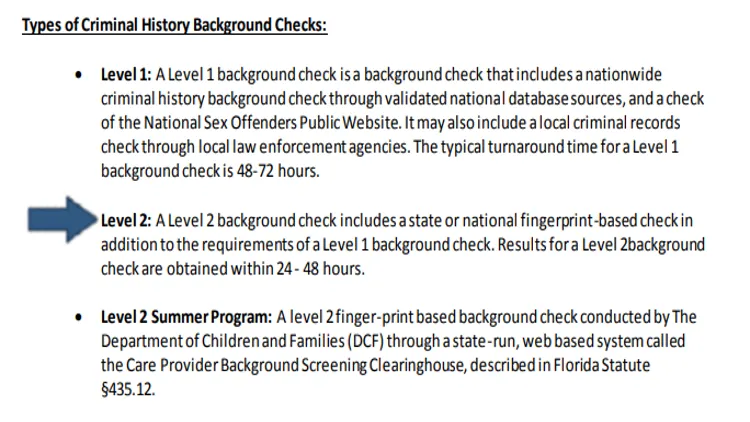
In Florida, level 2 checks are used with positions that involve working with vulnerable populations such as childcare, elder care, or working with disabled individuals. With greater responsibility and public trust comes a greater level of screening, and level 2 provides this information.
Level 3
The most common type of background check is a level 3 background check. It includes all the elements of level 1 and level 2; however, it also includes employment and education verification as part of the screening process. Level 3 checks can also include pre-employment drug and alcohol screenings or a physical examination to make sure someone is fit for the job duties.
This can also be a c level background check due to the increased responsibilities attached to the position the person is applying for. This includes a much deeper dive into the person’s background to verify they are the right one for the position.
This can be used as a background check for a visa application to determine if a person meets the necessary criteria for entry into the country.
The amount of information that shows up on report varies, but each one still has value when conducted. So figuring out the difference between different levels of background checks helps the employer determine which is best for their use.
What Shows Up on Level 1 & Level 2 Background Check?
Each type of background screening shows important information about the applicant, and although most show the persons name and criminal history, the amount of information varies by level .
Criminal history involves traffic offenses, infractions, misdemeanors, or felonies. It can also include pending charges and dropped or dismissed charges in states that do not automatically expunge non-convictions. Any criminal matter that is still considered a public record is discoverable in a level 1 check.
A level 1 check can possibly show employment history; however, this is usually just where the person worked and when. It does not include a reference check or shows why a person left a place of employment.
A level 2 screening includes the same information as a level 1 report, but it also includes a national criminal background check through the FBI so charges from anywhere in the U.S. may show. Fingerprinting is included in the level 2 screening allowing employers or property managers to get a better indication of the person’s character.
When companies perform routine background checks after employment it is possible to have a failed background check after a job offer. When adverse action is taken based on the information in the report, there may be additional requirements the company has.
At-will states are not required to provide a reason for the termination or rescinding of a job offer when a level 1 screening shows disqualifiers.
Employers, many use commercial screening companies to conduct background screenings for them and these companies must comply with state laws regarding the information included in the report.
They must also adhere to the Fair Credit Reporting Act regarding what information is disclosed and what notifications must be given to the applicant.
On the other hand, when a person knows they will be subjected to a background check for a job or as part of tenant screening, they can conduct a personal background check on themselves by using a third-party search site or by conducting their own search by using online government agency portals.
This can benefit individuals wanting to find out more about a potential love interest, friend, and more.
While it isn’t the most common type of background check performed, there are still companies that rely on this screening to start the process of onboarding a new employee. Knowing all about level 1 background checks meaning, limitations, and disqualifying offenses can help make informed decisions.
Frequently Asked Questions
How Much Does a Level 1 Background Screening Cost?
Level 1 checks can cost anywhere from $0-20 depending on who is doing the check. Individuals can access public portals themselves for free. Third-party site fees vary depending on the company and information requested but the average is $15.
What Does Level 1 Mean on a Sterling Background Check?
This screening is a county court search. In other words, it is the person’s criminal history for the county the person lives in going back seven to 10 years depending on the state laws.
1 How Human Resource Professionals View the Use and Effectiveness of Background Screening Methods. (n.d.). How Human Resource Professionals View the Use and Effectiveness of Background Screening Methods. Retrieved August 17, 2022, from <https://pubs.thepbsa.org/pub.cfm?id=9E5ED85F-C257-C289-9E8E-A7C7A8C58D00>
2 Understanding U.S. Government Background Investigations. (n.d.). Home [ors.od.nih.gov]. Retrieved August 17, 2022, from <https://ors.od.nih.gov/ser/dpsac/services/know-before-you-go/Pages/understanding-background-investigations.aspx>
3 Home. (n.d.). OnlineSunshine. Retrieved August 17, 2022, from <http://www.leg.state.fl.us/statutes/index.cfm?App_mode=Display_Statute&URL=0400-0499/0435/0435.htm>
4 Home. (n.d.). Kansas Government. Retrieved August 17, 2022, from <https://www.kansas.gov/government/legislative/bills/2000/2685.html>
5 National Instant Criminal Background Check System (NICS) | Federal Bureau of Investigation. (n.d.). FBI. Retrieved August 17, 2022, from <https://www.fbi.gov/services/cjis/nics>

